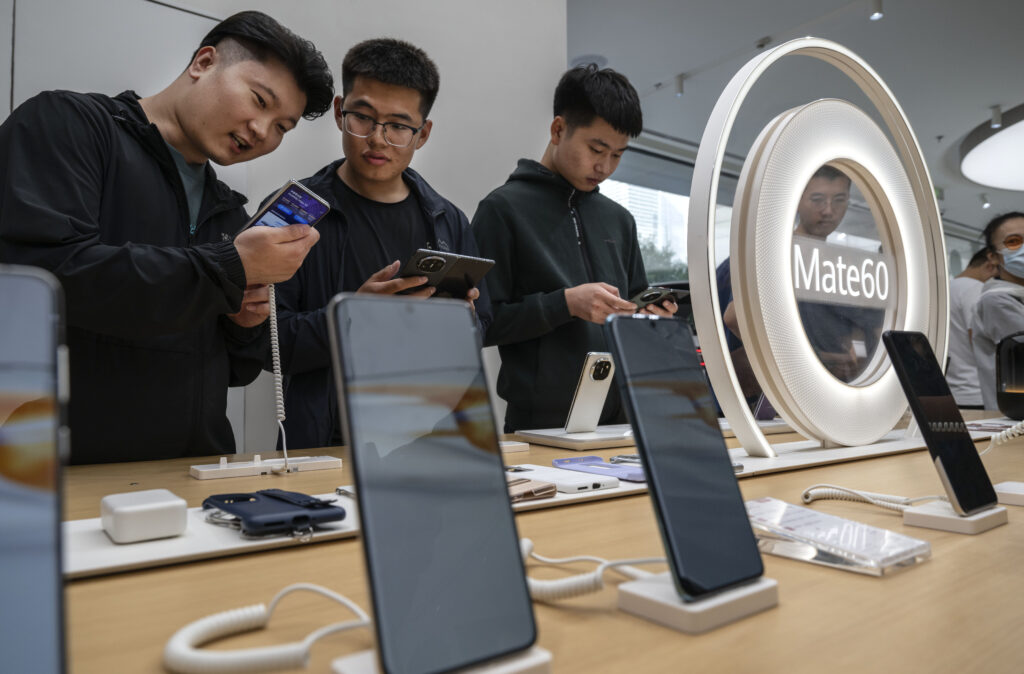Over the past few months, China has escalated its efforts to exert control over American technology companies by implementing new requirements, bans and restrictions.
The Chinese government is clamping down on American technology companies by throttling their already limited access to the country’s massive economy, according to new requirements, The Wall Street Journal reported on Friday. The country has also challenged American technology dominance by developing rivals to the latest smartphones and artificial intelligence (AI), as well as announcing export limits to key metals in July.
For instance, China is currently striving to close a loophole that allowed people in the country to download banned American apps, the WSJ reported. App operators are required to register with the Chinese government in order to remain on China’s Apple App store; over 25 app stores registered with the Chinese government, but Apple did not. (RELATED: Top American CEOs Are Quietly Jet Setting To China To Reforge Business Ties As US Relations Sour)
Chinese iPhone users previously could circumvent restrictions and download prohibited apps like Instagram, Facebook, WhatsApp, YouTube and Twitter — now X — by using Virtual Private Networks (VPN), the WSJ reported. Around 170 million people in China downloaded these banned apps since 2012, according to Sensor Tower.
“China is my biggest worry for Apple,” Aptus Capital Advisors Portfolio Manager and Apple Shareholder David Wagner told the WSJ. “These are huge risks in China that keep piling on.”
Moreover, recent reports suggested that China was planning a widespread prohibition of government-backed agencies and firms using iPhones, but a Chinese Foreign Ministry spokesperson asserted there is no official mandate, according to the WSJ. However, China reportedly told officials at some government agencies and businesses to stop using iPhones for work or business.
Apple’s stock tumbled hundreds of millions of dollars in the two days following the reports of a broad government iPhone ban, according to CNN Business. The stock still has not fully recovered as it is down over 8% in the past month.
The U.S. and China have been battling to gain an advantage in advanced semiconductors production for computers and other technology sectors like AI. Chinese technology company Huawei recently got around a U.S. semiconductor sanction and released a competitor to Apple’s iPhone, according to the WSJ.
BEIJING, CHINA – SEPTEMBER 25: People look at newly launched smartphones at a Huawei flagship store after the company unveiled new products on September 25, 2023 in Beijing, China. China’s Huawei recently unveiled its new line of smartphones, including the Mate 60, which features a Chinese made chip. (Photo by Kevin Frayer/Getty Images)
China has also implemented export restrictions on gallium and germanium, which are metals used to produce computer chips and other technological devices, according to an announcement by the country’s Ministry of Commerce in July.
OpenAI’s popular American AI chatbot ChatGPT is unavailable in China, according to CNBC. Chinese tech giant Baidu has also been developing a rival to ChatGPT called Ernie that overtook an older version of its American competitor in benchmark tests, according to China Science Daily.
Amazon’s China division pushed for companies using its internet services to register with the Chinese government, according to the WSJ. Failure to comply with this registration requirement could lead to the potential loss of access to these services.
Amazon also planned to close its app store in China in July, according to South China Morning Post.
Apple, Amazon, Meta, YouTube and X did not respond to the Daily Caller News Foundation’s request for comment.
All content created by the Daily Caller News Foundation, an independent and nonpartisan newswire service, is available without charge to any legitimate news publisher that can provide a large audience. All republished articles must include our logo, our reporter’s byline and their DCNF affiliation. For any questions about our guidelines or partnering with us, please contact licensing@dailycallernewsfoundation.org.


